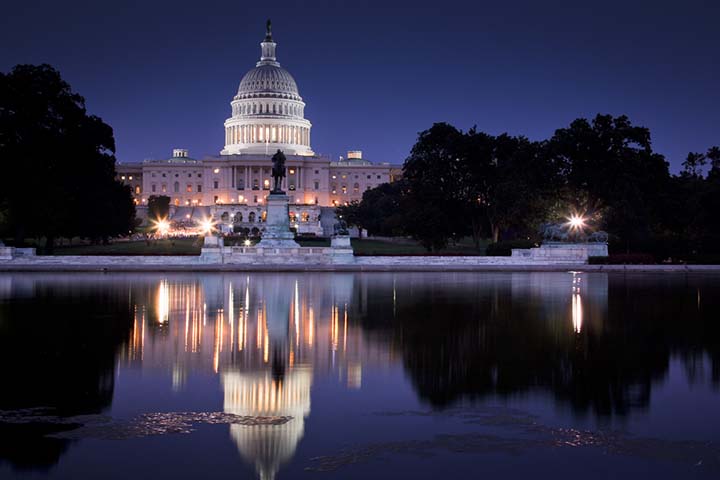News December 15, 2021
Ban on Imports From Xinjiang Moving Through Congress
President Joe Biden has indicated he would sign the legislation, which prohibits imports from the region of China where widespread forced labor is alleged.
Legislation banning imports from Xinjiang because of concerns over widespread use of forced labor in that region of northwestern China is close to becoming law.
The House of Representatives passed the measure unanimously on Tuesday, Dec. 14. The act went to the Senate, where it was initially expected to pass with bipartisan support. However, the bill stalled in the Senate on Wednesday, Dec. 15. It was possible the Senate would consider the bill again on Thursday, Dec. 16.

U.S. Capitol Building where Congress meets.
President Joe Biden has indicated he would sign the measure into law if it makes it to his desk.
“The Administration will work closely with Congress to implement this bill to ensure global supply chains are free of forced labor, while simultaneously working to on-shore and third-shore key supply chains, including semiconductors and clean energy,” White House Press Secretary Jen Psaki said in a statement.
Last week, the House had passed a different version of the bill. The legislation approved Wednesday cleaned up differences between that bill and another that had been introduced in the Senate.
While products like cotton and tomatoes from Xinjiang are already prohibited from being imported into the United States, the new legislation would effectively ban all imports from the region.
The legislation establishes a “rebuttal presumption” that all goods from Xinjiang are made with forced labor. Such products can’t legally be imported into the U.S.
The “rebuttal presumption” means an importer could still import such goods from Xinjiang if it can definitively prove to authorities that no forced labor was used to make the items it aims to bring stateside – a high burden of proof.
Should the act become law, all importers, including those in the promotional products industry, would have to ensure that no part of their supply chains touch Xinjiang.
When bans on select products from Xinjiang were previously announced, some promo products suppliers said they’d taken extensive steps to make sure their supply networks aren’t tainted by forced labor and/or tied to Xinjiang.
Xinjiang provides approximately 85% of the cotton from China, which produces more than 20% of the world’s supply of cotton. The region also makes about half the world’s supply of an important element for solar panels. This significant position in global supply chains has led some business groups and large companies, including Apple, to lobby against restrictions on imports from Xinjiang.
Uyghurs, a Turkic ethnic group in Xinjiang that’s predominantly Muslim, have reportedly been detained and forced to work in labor camps by China’s government. The U.S., other countries and human rights groups have accused China of things like unjustly imprisoning Uyghurs (and other ethnic minorities in the region) and forcing sterilization on them – treatment that, taken with other alleged abuses, amounts to genocide, according to critics and human rights experts. China denies any wrongdoing.
